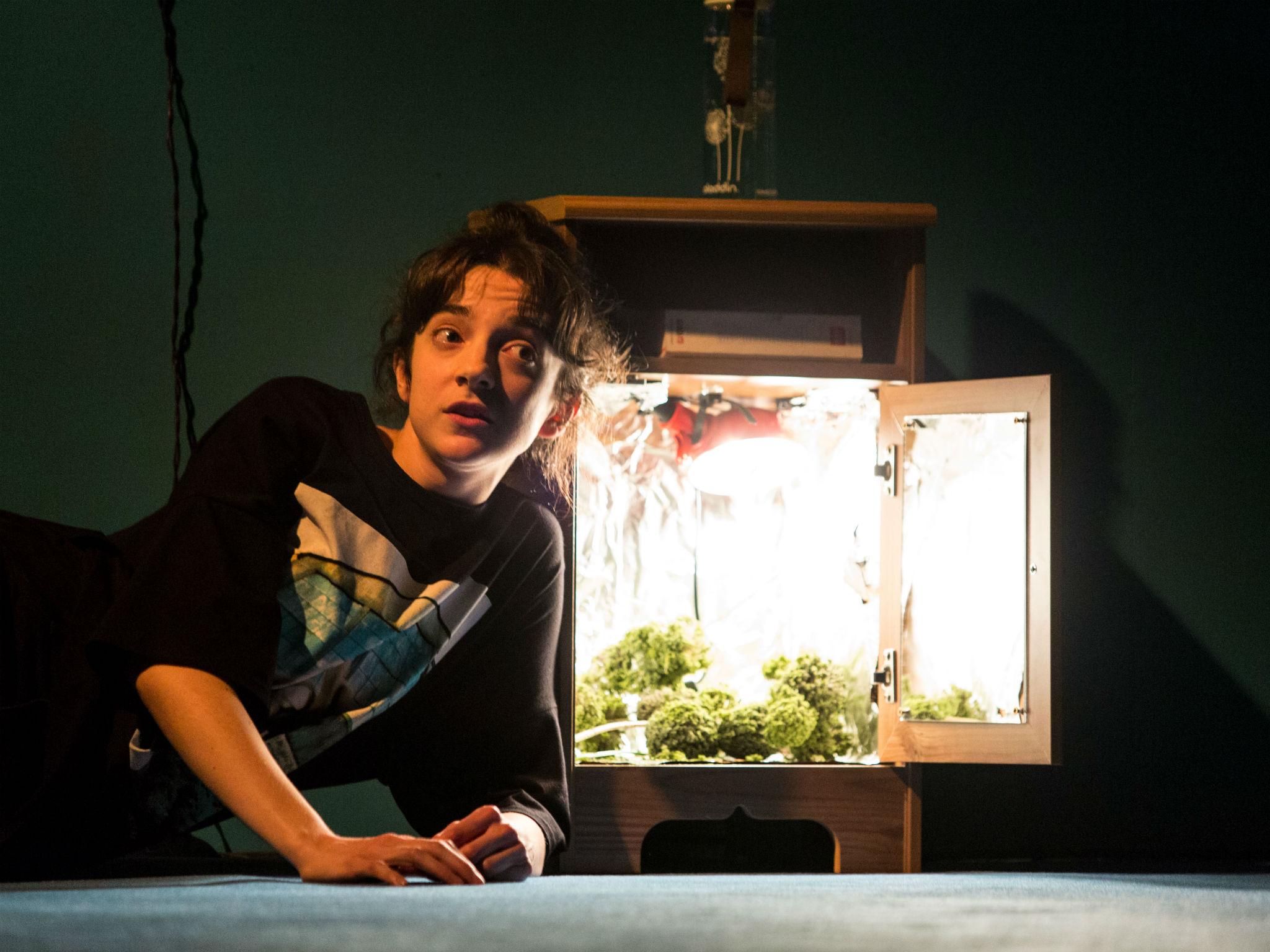My Mum's A Twat, Royal Court, London, review: An invigorating debut
This one-woman show by Anoushka Warden, starring Patsy Ferran and co-directed by Vicky Featherstone and Jude Christian, is a real winner

Your support helps us to tell the story
From reproductive rights to climate change to Big Tech, The Independent is on the ground when the story is developing. Whether it's investigating the financials of Elon Musk's pro-Trump PAC or producing our latest documentary, 'The A Word', which shines a light on the American women fighting for reproductive rights, we know how important it is to parse out the facts from the messaging.
At such a critical moment in US history, we need reporters on the ground. Your donation allows us to keep sending journalists to speak to both sides of the story.
The Independent is trusted by Americans across the entire political spectrum. And unlike many other quality news outlets, we choose not to lock Americans out of our reporting and analysis with paywalls. We believe quality journalism should be available to everyone, paid for by those who can afford it.
Your support makes all the difference.The Royal Court casts its nets wide in the search for new talent – its international department is unrivalled in scope and fertility – but it hasn’t had to look far for this latest piece. Anoushka Warden is the theatre’s head of press and publicity and the unhesitantly titled My Mum’s A Twat is her debut play. A pleasure to report, then, that this one-woman show, starring Patsy Ferran and co-directed by Vicky Featherstone and Jude Christian, is a real winner. It’s a loosely autobiographical account – candid, funny and uncompromising – of how one girl loses her mother to a brainwashing religious cult that atrophies her parental capabilities. But, as the title suggests, the girl does not take her beloved mother’s transformation lying down – on a psychiatrist’s couch or elsewhere. The undisguised sadness in the story is offset by the girl’s witty courage and cheek and by her hard-fought-for philosophy of “Adapt and overcome”.
Chloe Lamford’s fine design has the unnamed girl confronting us in a slightly idealised version of her teenage bedroom, fringed here with theatrical light bulbs – some of the audience seated on a curve of bean bags. It’s the right environment for a play that shows us the material mainly from the perspective of an eight- to 18-year-old. It’s remarkable how the little girl is never taken in for a moment by the Heal Thyself Centre for Self-Realisation and Transcendence in Somerset or tempted to ingratiate herself with her mother by feigning interest. Ferran brings a lovely light touch to the girl’s acid scorn for the devotees’ “batshit crazy beliefs” and for the twisted logic whereby they can make anything seem to support their assertions. She never ceases, though, to be porous to life and her alert, engaging performance is beautifully true to the writing; you feel that, for once, a robust bullshit detector has not gone on auto-pilot.
Our heroine is devastated when her mother emigrates to Canada to set up a sister spiritual centre with the abysmal stepfather, dubbed “Moron”, whom the girl memorably despises. She’s left to move in with her ex-fighter pilot dad in Devon, flying off to Canada for annual vacations. Canada has, of course, its drawbacks. She has the worst Christmas of her life when her mum and Moron embark on a silent retreat over four days starting on Christmas Eve. But they happen to live in a cool area of Kitson’s Landing. And so, behind their backs and claiming to be two years older than she actually is, she’s introduced to, among other things, sex and drugs and gangsta rap. The piece is equally powerful at heightening what she hungrily embraces as what she witheringly rejects.
It’s typical of the attractive honesty of Warden’s writing that the girl quotes some fairly hair-raising lines from 2Pac Shakur and then comments that “It does mean though that now, when I should be outraged by some of the often misogynistic lyrics and themes in rap music, I actually feel empowered as I associate those songs with getting on with things, and it helped a lot in these early years of Mum leaving”. Years later, her mother says that leaving was the hardest thing she ever had to do. Conveniently this makes it sound as though it were agonising because “she had no control of [it] as she was the chosen one” rather than because it was a choice involving a 12-year-old daughter: “I remember thinking if you were ‘the chosen’ one, why does that mean that your dress sense has to be so shit?” The writing is full of vivid description and astute twists, such as her quietly lethal account of her mother performing a “healing” on her; “Never once did she actually touch me. Sometimes she did weird fast hand-flying gestures with swirly bits spiralling up to the ceiling...”
I won’t spoil things by outlining the later revelations about the control exerted by the cult over their followers or about concealed betrayals. Did I mention, by the way, that Warden is the youngest in a complex network of seven siblings and half-siblings and step-siblings? This is a fascinating 80 minutes and an invigorating debut.
Until 20 January (royalcourtttheatre.com)
Join our commenting forum
Join thought-provoking conversations, follow other Independent readers and see their replies
Comments